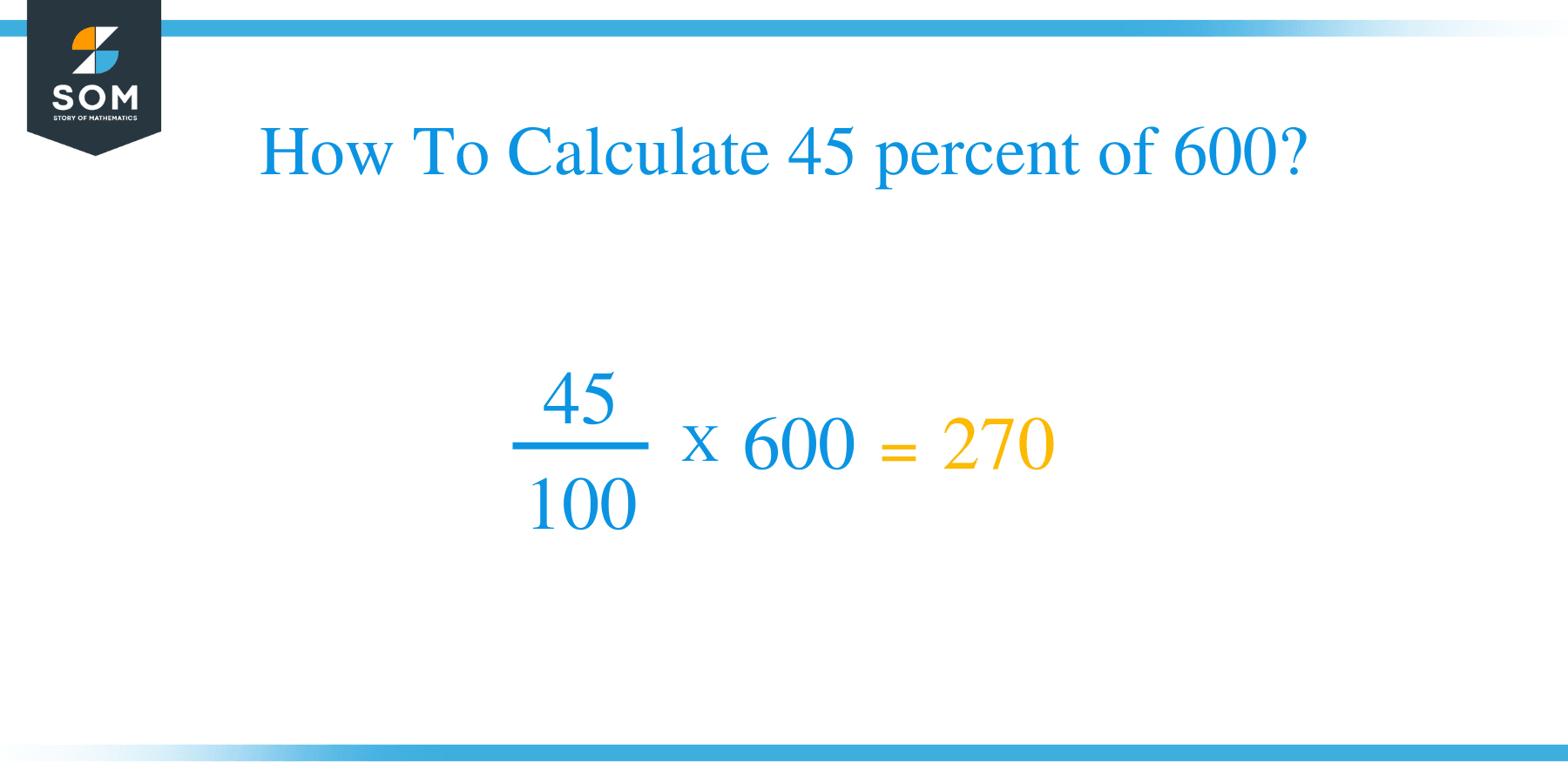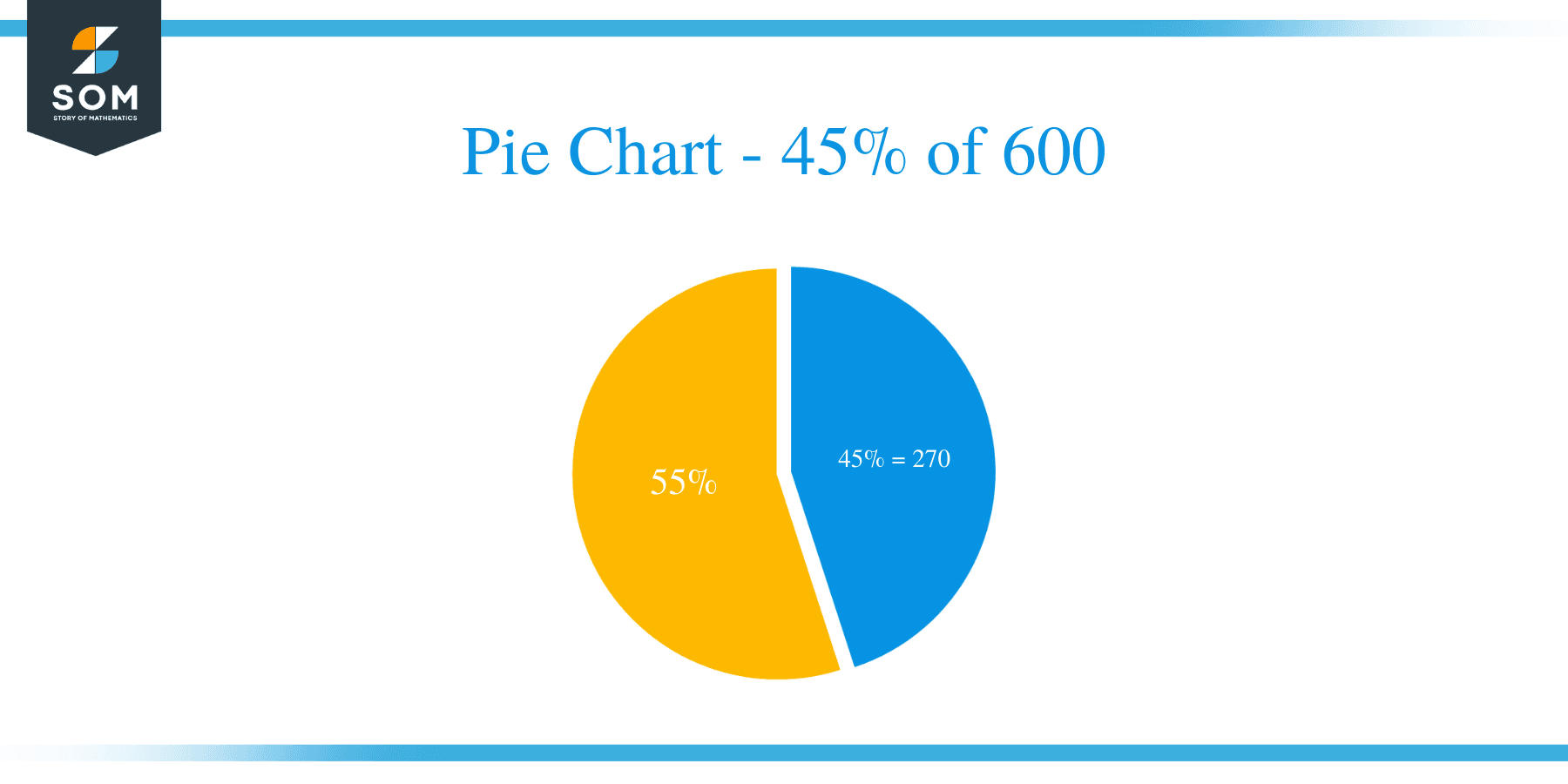What Is 45 Percent of 600 + Solution with Free Steps?
 The 45 percent of 600 is equal to 270. It can be easily calculated by dividing 45 by 100 and multiplying the answer with 600 to get 270.The easiest way to get this answer is by solving a simple mathematical problem of percentage. You need to find 45% of 600 for some sale or real-life problem. Divide 45 by 100, multiply the answer with 600, and get the 45% of 600 value in seconds.This article will explain the full process of finding any percentage value from any given quantity or number with easy and simple steps.
The 45 percent of 600 is equal to 270. It can be easily calculated by dividing 45 by 100 and multiplying the answer with 600 to get 270.The easiest way to get this answer is by solving a simple mathematical problem of percentage. You need to find 45% of 600 for some sale or real-life problem. Divide 45 by 100, multiply the answer with 600, and get the 45% of 600 value in seconds.This article will explain the full process of finding any percentage value from any given quantity or number with easy and simple steps.
What Is 45 percent of 600?
The 45 percent of 600 is 270.The percentage can be understood with a simple explanation. Take 600, and divide it into 100 equal parts. The 45 number of parts from the total 100 parts is called 45 percent, which is 270 in this example.How To Calculate 45 percent of 600?
You can find 45 percent of 600 by some simple mathematical steps explained below.
Step 1
Firstly, depict 45 percent of 600 as a fractional multiple as shown below:45% x 600
Step 2
The percentage sign % means percent, equivalent to the fraction of 1/100.Substituting this value in the above formula:= (45/100) x 600
Step 3
Using the algebraic simplification process, we can arithmetically manipulate the above equation as follows:= (45 x 600) / 100
= 27000 / 100
= 270
